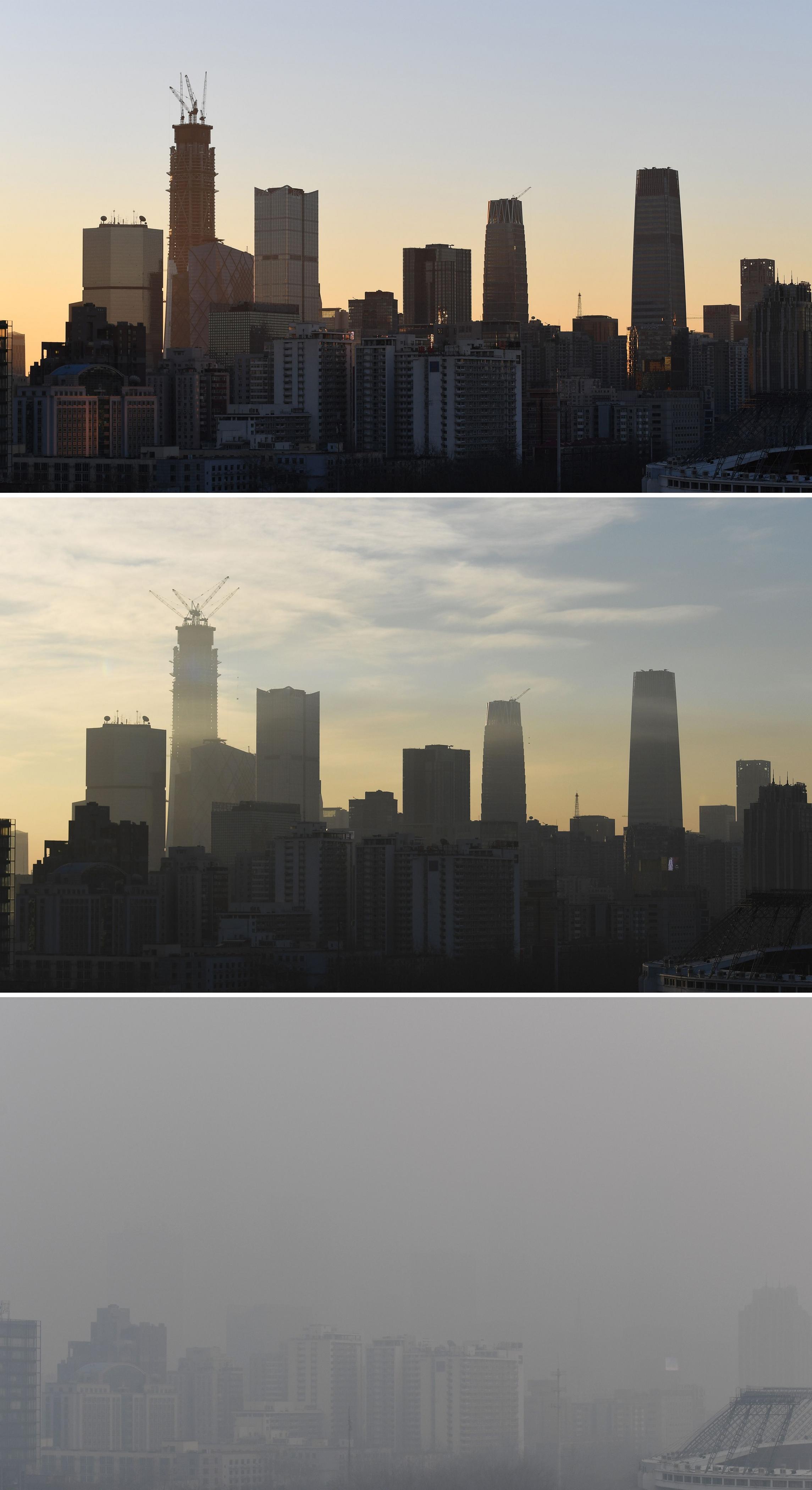BEIJING (REUTERS) - Blue skies returned to Beijing on Thursday (Dec 22) after winds dispelled dangerously high levels of air pollution that had blanketed the Chinese capital for five days prompting a pollution red alert, but large parts of northern China remain under choking smog.
The Air Quality Index (AQI) in Beijing spiked to more than 400 overnight, but by morning had dropped to about 50.
The Beijing city government said it had lifted the red alert in place since last Friday evening, meaning emergency restrictions on vehicle use and construction would end.
But high readings are still being recorded in other parts of northern China, including parts of the major metropolis of Tianjin which sits next to Beijing, and the province of Hebei that surrounds Beijing.
Shijiazhuang remained on red alert as grey skies continued to cast a pall over Hebei's capital.

Earlier this week, the AQI in Shijiazhuang sustained above 500 for more than two days, with residents complaining that Hebei's biggest city had disappeared in a sea of smog.
Since the weekend, 24 cities had issued red alerts, and the widespread pollution had disrupted flights, traffic and shipping, and closed factories and schools across northern China. Flights had resumed in Beijing, Shijiazhuang and Tianjin.
A red alert is the highest level of a four-tier, colour-graded warning system. Red alerts are issued when the AQI is forecast to exceed 200 for more than four days in a row, 300 for more than two days or 500 for at least 24 hours.
China began a "war on pollution" in 2014 amid concerns its heavy industrial past was tarnishing its global reputation and holding back its future development, but it has struggled to reduce pollution.
Pollution alerts are common in northern China, especially during winter when energy demand, much of it met by coal, soars.
The country's northern provinces mostly rely on the burning of hundreds of millions of tonnes of coal each year for heating.
Natural gas and electricity can be substitutes for coal in heating buildings in north China, the official Xinhua News Agency reported, citing President Xi Jinping as saying at a government meeting on Wednesday.
Clean energy should be used as much as possible, Mr Xi said, adding that the government will give enterprises a major role in the process to ensure heating is affordable.
Northern China can expect a smoggy Christmas weekend, with the air quality forecast to deteriorate again on Saturday before improving on Monday.

